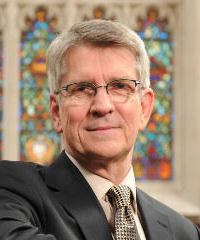On November 10, 2020, the Vatican released its long-awaited report on the rise of former Cardinal Theodore McCarrick within the Catholic Church. This unprecedented 459-page account revealed major institutional, cultural, and personal failures that led to immense suffering for victim-survivors of clergy sexual abuse and terrible damage to the Church.
One month later, the Initiative on Catholic Social Thought and Public Life at Georgetown University and the Taking Responsibility: Jesuit Institutions Confront the Causes and Legacy of Clergy Sexual Abuse initiative at Fordham University co-sponsored an online dialogue to look at the report’s most important findings, lessons it holds, and future directions in continuing to confront the clergy sexual abuse crisis in the Catholic Church.
A journalist who covered McCarrick for decades, a historian of U.S. Catholicism, and two survivors of clergy sexual abuse who have worked for the U.S. Catholic bishops and with Pope Francis explored questions such as:
- What are the most important findings of the report? Its greatest strengths? Its most significant shortcomings?
- What are the most important lessons from the report? For the Church in the United States? For the Vatican? For victim-survivors? For bishops? Laypeople?
- What are the global implications of the report? What does this mean for the universal Church, and in particular for victim-survivors in and beyond the United States?
- In light of the report, what are the most important directions and priorities to overcome clericalism and to assure greater transparency, accountability, renewal, and reform in the Catholic Church?
Resources
View a list of articles, books, and other resources for this dialogue.
This online Public Dialogue was co-sponsored by the Taking Responsibility Initiative at Fordham University and the Initiative on Catholic Social Thought and Public Life at Georgetown University.





